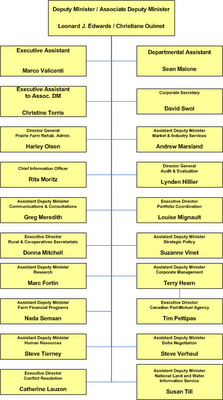by Guy W. Giorno
A CEO who fails to file or who reports inaccurately is guilty of a federal offence. Heightening the stakes is the fact that failure to report and reporting inaccurately are strict liability offences, meaning that a CEO can be convicted even if he or she
did not intend to break the law.
Parliament’s approach to CEOs is much more severe than that of the provincial legislatures. In British Columbia, Nova Scotia and Ontario, a corporation’s employees are individually responsible to register as lobbyists.11 Even the Newfoundland and Labrador and Quebec laws, which place responsibility for filing on the corporate CEO, extend responsibility to the individual employees by providing that an employee who engages in unregistered lobbying is guilty of an offence.
Subject to the approval of Parliament, the new federal government intends to make the
federal laws even stricter. Proposed legislation would “ban success or contingency fee arrangements,” a practice currently permitted in provincial lobbying everywhere except Quebec. The New Democrats and Bloc Québécois are on record supporting this reform.
The new government also proposes to amend the federal Act to “Require ministers and
senior government officials to record their contacts with lobbyists.” This reform, long advocated by Democracy Watch, would be the most fundamental change to Canada’s lobbying laws since the federal statute was passed in 1988. Until now, the obligation to record and report on activity has rested solely on lobbyists and their employers. Those who are the subject of lobbying efforts have to date been free from any requirements of transparency or disclosure.
Democracy Watch has argued, with justification, that it is appropriate to ask those elected to public office and those employed to serve Canadians in government to account for their contacts with persons outside government. The new government agrees and, if Parliament concurs, both government officials and lobbyists will be required to report on contacts with each other.
Recent and pending changes to the federal law have implications for all jurisdictions. In past, the federal lobbyists registration statute has presaged legislative developments at the provincial level, at least in the provinces outside Quebec.
The Diminishing Importance of “Who You Know”
In addition to reforms to increase openness and transparency, the lobbying industry faces a fundamental transformation in how it does business. In the wake of controversy over “insiders” plying their trade, the old-fashioned model of access-based lobbying, still practised by some, faces combined pressure from public dissatisfaction, media scrutiny, and heightened enforcement.
Three areas in particular are now coming under increasing scrutiny: (1) the connection between political fundraising and lobbying; (2) the connection between lobbying and political advice/campaign support; and (3) the provision of services to government departments or agencies that one also happens to be lobbying.
Such activity has already attracted the attention of various advocates of reform. For example, the changes being championed by Democracy Watch include the following: Lobbyists should be required to disclose past or current work with
governments, political parties, or candidates for federal public office.
Lobbyists should be prohibited from serving in senior positions on campaigns of political parties or candidates (as is prohibited in Maryland and New Mexico).
Lobbyists should be prohibited from doing work with government departments they are lobbying, and from having business connections with anyone who does such work.
Among the Opposition parties, the NDP echoes the last of these recommendations. It
explains that “communications consultants should be obliged to decide whether they wish to be private lobbyists or public service confidantes. They should not be allowed to be both.
Meanwhile, following 214 days of hearings in the Toronto Computer Leasing Inquiry and
the Toronto External Contracts Inquiry, Madam Justice Denise Bellamy recommended that, “113. Professional lobbyists should not engage in any type of political fundraising for candidates or councillors they lobby, beyond making their own donations.
Amid the uncertainty of rules that continue to evolve and change, one thing is clear: the opportunities for old-fashioned, access-based lobbying are diminishing. This trend has obvious implications for companies that engage or employ lobbyists, but also for Canadians, who stand to benefit.
Guy W. Giorno is an attorney at law with Fasken Martineau
_____________________
Mark Buzan is the owner of Action Strategies, a public affairs & marketing communications consultancy. You can subscribe now to his monthly public affairs newsletter by visiting www.action-strategies.ca and dropping down the newsletter menu.
 Do your environmental scan and understand where you can most effectively get your message through.
Do your environmental scan and understand where you can most effectively get your message through.



